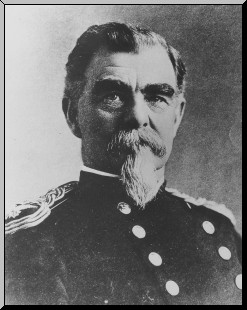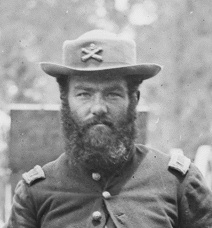John Moulder Wilson facts for kids
Quick facts for kids
John Moulder Wilson
|
|
|---|---|

John Moulder Wilson
|
|
| Born | October 8, 1837 Washington, D.C. |
| Died | February 1, 1919 (aged 81) Washington, D.C. |
| Place of burial |
West Point Cemetery
|
| Allegiance | United States of America Union |
| Service/ |
United States Army Union Army |
| Years of service | 1860–1901 |
| Rank | |
| Commands held | Chief of Engineers |
| Battles/wars | American Civil War |
| Awards | Medal of Honor |
| Other work | Superintendent of the United States Military Academy |
John Moulder Wilson (born October 8, 1837 – died February 1, 1919) was an important American soldier and engineer. He served in the Union Army during the American Civil War. Later, he became the head engineer for the U.S. Army. He also led the famous West Point school for soldiers. Wilson received the Medal of Honor, which is a very high award for bravery in battle.
Contents
Early Life and Military Start
John Moulder Wilson was born in Washington, D.C.. He attended the West Point and graduated in 1860. After graduating, he joined the U.S. Army.
Fighting in the Civil War
When the American Civil War began, Wilson served as an engineer. He was part of the Union Army. In July 1862, he joined the Corps of Topographical Engineers. This group made maps and planned military movements.
Medal of Honor for Bravery
Wilson showed great bravery during the war. He received the Medal of Honor for his actions at the Battle of Malvern Hill. This battle took place in Virginia on August 6, 1862. The Medal of Honor is the highest award for military heroism in the United States. In 1863, he joined the United States Army Corps of Engineers. He also received special promotions for his excellent service in Alabama.
After the Civil War
After the Civil War ended, John Moulder Wilson continued his work as an engineer. He helped with many important projects across the country.
Engineering Projects
- He worked on improving the Hudson River. This helped boats travel more easily.
- He designed plans for a canal around the Cascades of the Columbia River. Canals help ships move between different water levels.
- Wilson also improved harbors on the Great Lakes. These included harbors in Oswego, New York, Cleveland, Ohio, and Toledo, Ohio.
Leading Roles
Wilson held several important leadership positions:
- For four years, he managed military affairs for the Chief of Engineers.
- He was in charge of public buildings and grounds in Washington, D.C. This happened during the time Grover Cleveland was president.
- From 1889 to 1893, he was the Superintendent of West Point. This meant he was the leader of the famous military school.
- Before becoming the Chief of Engineers, he was the Northeast Division Engineer.
Chief of Engineers
Later, John Moulder Wilson became the Chief of Engineers. In this role, he led all the activities of the U.S. Army Corps of Engineers. He directed their work during the Spanish–American War.
Later Life and Legacy
John Moulder Wilson retired from the Army on April 30, 1901. Even after retiring, he remained active in public life.
Public Service
- He helped settle a big worker strike in 1902 called the Coal strike of 1902. He acted as an arbitrator, which means he helped both sides agree.
- From 1902 to 1907, he was the president of the Columbia Hospital for Women.
Wilson remained an important person in Washington, D.C. He passed away there on February 1, 1919.
 | Jackie Robinson |
 | Jack Johnson |
 | Althea Gibson |
 | Arthur Ashe |
 | Muhammad Ali |


